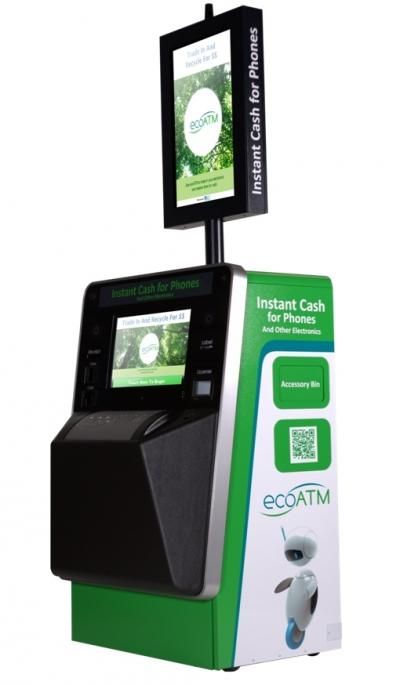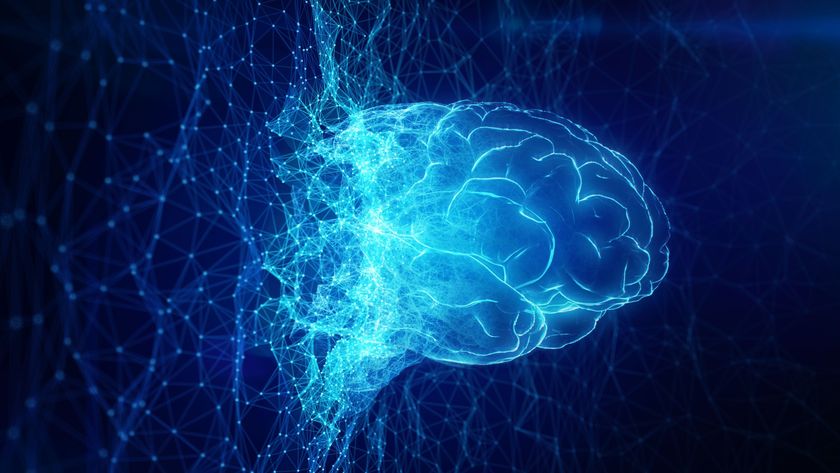Say Hello to a New Way to Sell Your Cellphone

Been thinking of upgrading to a new cellphone? You may be in luck. Almost 150 new, artificially intelligent kiosks that buy back people's old cellphones have been installed in malls in several U.S. states. Users get cash for their phones, while the unwanted devices get a second life, which keeps the phones' toxic metals out of landfills.
EcoATM founder Mark Bowles came up with the idea after reading that only three percent of people worldwide have ever recycled a cellphone, he told InnovationNewsDaily. "I thought about my own case. Why didn't I do it?" he said. "I didn't know where to do it and I didn't have an incentive."
EcoATM aims to answer both problems by putting recycling kiosks "in people's normal paths" and by giving people an alluring reward: "Immediate cash, on the spot," Bowles said.
To use an ecoATM machine, users place their unwanted devices on the machine's scanner. EcoATMs deploy computer vision and artificial intelligence to recognize more than 4,000 makes and models of phones, chargers and other accessories. The machines also assess damage to the devices, sorting them into one of eight categories of conditions. [Do-It-Yourself Cat Door Recognizes Your Feline]
From there, the computer system estimates a value for the device. Possible payouts range from $1 to $250, according to the ecoATM website. Users who want to go through with the trade choose either cash or store credit, or donate the value to one of several charities.
On the other end of the trade, ecoATM has relationships with international companies that have pre-bid on phones in different conditions. Those partners resell phones in good condition, mostly to American customers, Bowles said. Three-quarters of the phones ecoATM processes are reused, according to the company. The other 25 percent are recycled for their precious metals and electronic components.
"The ecoATM project is an extremely innovative way to motivate the public with an incentive to do the right thing with discarded electronics, both socially and environmentally," Glenn Larsen, an officer who oversees National Science Foundation grants to ecoATM, said in a statement. The foundation has supported ecoATM with two grants for small businesses. EcoATM is otherwise funded by private investors.
Sign up for the Live Science daily newsletter now
Get the world’s most fascinating discoveries delivered straight to your inbox.
Getting a computer program to distinguish between phones was no easy feat, Bowles said. "A lot of these phones are just a dark sheet of glass that's a rectangle," he said. In addition, blemishes to the phones' screens, such as smudgy fingerprints and cracked glass, will look similar to a computer program, even though they mean very different things for the valuation of the phone, he explained.
To make its judgments, the ecoATM kiosk subjects each phone to a series of visual tests, lighting the phone in different ways. It also asks users to plug in their phones for an electronic evaluation, after automatically offering users the correct plug.
EcoATM's computer algorithms accurately recognize phone models and classify damage 97.5 percent of the time, according to the National Science Foundation. The algorithms are able to learn from mistakes, so that number may improve in the future. The company plans to continue researching how to improve accuracy.
EcoATM's kiosk locator lists almost 150 locations in Washington, California, Colorado, Texas, Georgia and on the East Coast. The company plans to have 300 machines in place by the end of the year.
This story was provided by InnovationNewsDaily, a sister site to LiveScience. Follow InnovationNewsDaily on Twitter @News_Innovation, or on Facebook.











